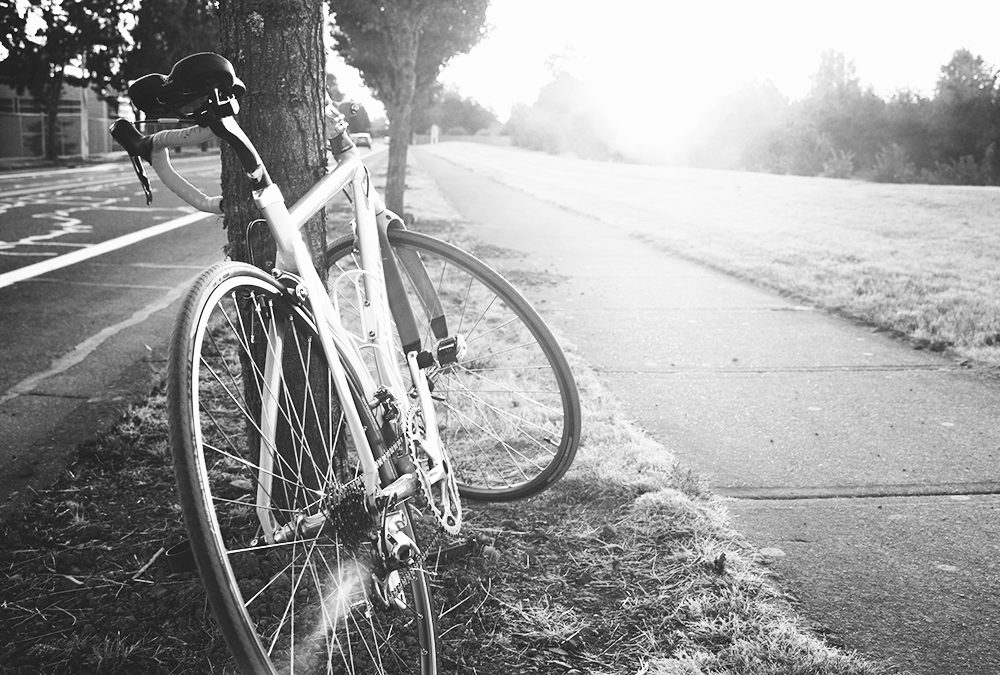Surviving suicide and the road to recovery


By Joseph Clark
It’s been almost a year since I last had a bad day. I’ve had bad hours, but I’ve not had one of those days where you just don’t feel like getting on with life stuff, and you trick yourself into thinking that the world is working against you. I never believed that I would reach a point in my life where I’d experience a period of sustained happiness because I’d convinced myself in my mid-teens that my choices were either to be miserable forever or to be dead. It was only after my suicide attempt that I was able to understand that I didn’t have to beat myself up every minute of every hour. Thankfully, and unbelievably, I came out physically unscathed. Survival gave me an opportunity to learn about my mental health and eventually understand it in such a way that I could learn to live with it and even channel my often-extreme emotion into a source of positivity. The happiness that I have found, though, doesn’t change the fact that I am only still alive because of a huge slice of luck. The reason I am telling my story is to help people see that suicide is never the answer. We can change if we allow ourselves the space and time to learn about ourselves and proceed with care. The UK mental health system is also failing us. Before I suggest changes that I feel would be immensely beneficial to masses of people who struggle with mental illness in this country, I wanted to share my experience.
I had always been a high achiever at school and was someone who excelled and pushed themselves in sport. From the outside, I probably seemed like quite a confident and chirpy teenager and I was able to pretend that I was comfortable in my own skin. In reality, during the latter part of secondary school I was becoming more and more insecure; in my looks, about my general character and over the ever-shifting dynamics of various friendship groups. I was left feeling lonely a lot of the time, even when I had people around me. I will just add that no one who suffers with mental illness is ever just made up of low points; I certainly had occasions where I was perfectly happy, but these moments seemed fleeting and largely irrelevant.
Another issue with the way I was functioning during my mid-teens was the amount of emphasis I was placing on my own performance in exams. Stressing about grades consumed a lot of my time during my school years and certainly fuelled my anxiety and depression; the more I stressed, the more time I wasted, the more anxious I became and so on. Somewhere along the way I had learnt to associate my own self-worth with the grades I was given, to the point where they were almost all that mattered to me. I stopped running competitively even though race days and training nights at the track were previously the only times when I had been able to relieve the pressure of seemingly ever-mounting schoolwork. Instead, I spent entire days at my desk almost every weekend from school years 11-13.
My mental state around this period was also not helped by the fact that I actually had a lot to be thankful for; a loving family, some unbelievably supportive friends, the opportunity to study at a great school, etc. This may seem like a paradox, but it is often the case when you are depressed that the more you have the worse you feel. I would beat myself up almost daily about the fact that I had so much going right for me, and yet I still had the audacity to complain about the way I was feeling. Looking back now, I can appreciate how irrational these thoughts were. It was not my life experience or external surroundings that needed to change, but my view of it and the thought patterns that dictated my perspective.
Once A-level exams were approaching, my mental health was at the worst point it had ever been. I had been predicted really strong grades and yet I would still not let myself believe that I had the capability to achieve such success. I spent time panicking about revision, and then I spent time panicking about the time that I had wasted panicking, and then it would get to the end of the day and I would realise I had done nothing productive, and I would have to work twice as much tomorrow. This cycle never seemed to stop. I had long ago convinced myself there was something wrong with me for not being able to control my emotions, so when I walked out of one of my actual A-level exams in tears, I couldn’t tolerate the anger and guilt and the extremity of the various other emotions I was feeling. It was a week before my next exam and my mind felt like a hamster spinning on its wheel whilst high on some form of class-A drug. I felt I had let myself, my teachers, my family and my friends down, and I had humiliated myself by walking out of an exam which I had been preparing for over the last two years. My mental health issues which had been brewing over the last few years had reached their peak and the stress of my A-levels were the final trigger. I decided that I was a failure and a liability to everyone around me, and that everyone would be better off if I were dead.
A week after my eighteenth birthday, in late May 2019, I decided that the pain that I was feeling at that moment was too much for me to bear and I made a suicide attempt. By some miracle, I came away with no life changing or life-threatening injuries. My friends, family and I are still staggered as to how I am still here, and I can’t explain with words how grateful (and lucky) I truly am. However, I did not suddenly have a moment of revelation after my suicide attempt, and it took a lot of patience and support before I was able to say that I was no longer experiencing depressive symptoms. I had one week in hospital, three weeks in a psychiatric ward, two lots of intense therapy sessions, a lot of home visits to check I was doing okay and meetings with my psychiatrist to monitor my progress. I was the youngest in the psychiatric ward that I was moved into after a week of recovery in hospital by about fifteen years, sharing a hall with patients who were institutionalised and often displayed aggressive behaviour. I eventually learnt that my fellow patients were harmless and caring, once I’d taken the time to chat to them. There were moments that I wanted to give up on myself again and did not believe that I would ever get to a place where I could be content, but my friends and family never gave up on me. They were the people who inspired me to give myself a fighting chance at getting better and to at least believe it was possible. Without them I would be lost.
There were a countless number of factors that helped me to become healthy again in the year after my suicide attempt, but the medication I was prescribed and the therapy course I was enrolled on seemed to be what I had desperately needed all along. The medication helped to keep my mood stable, and I felt like I had more control over my emotional state once I was on them. The therapy course, in all honesty, blew my mind. The main lesson I learnt was that there really was nothing wrong with me, and that I had just developed some faulty ways of thinking throughout the early years of my life which led me to constantly talking down to myself. I stopped asking why it was that I struggled with my mental health and started asking how it was that I could live happily despite it. I was educated on how thoughts affect feelings which affect behaviour and thus realised that if I could change my thoughts, I really could change my life.
I finished my therapy course, and I had a meeting with my psychiatrist just afterwards, in around July 2020, in which we both agreed that I was no longer experiencing depression and could be discharged from the recovery team. The combination of the love and support of my friends and family, the care from the various people who had looked after me in the weeks and months after my attempt, the medication and the therapy, meant I had somehow defied the odds which I had stacked against myself. I felt as though I had achieved the impossible. I was now in a place where I loved who I was and could start embracing life. The contrast from where I was a week after my eighteenth birthday, when I had given up on myself and life entirely, to the elation I felt when walking home from that meeting a year later, when I realised that I was actually going to be okay, simply could not have been greater.
Just four months after making my suicide attempt, I managed to land a full-time job at a finance company in London, after deciding I needed to take a year out from academia. The company was the perfect place for me at the time – my confidence improved as my colleagues put their trust in me to carry out professional tasks, and they also allowed me the flexibility to have time off for my therapy sessions. I appreciate how fortunate I am to have worked in a place where I felt as though I was working alongside my bosses, rather than under them, and could see them as friends. The pandemic hit and surely enough I was able to react well by problem-solving and trying to make the best of a bad situation rather than mulling over the negative elements of this new way of life. I started running for enjoyment rather than success and I found I could now do that with a smile on my face rather than glancing at my watch every two seconds to see my pace. I found that I generally enjoyed my own company a lot more, simply because I was being kinder to myself, and listening to music and reading in my room alone became a source of relaxation and satisfaction too. My friends and family will always be there to support me, but I knew that I was beginning to end this tricky phase of my life when I noticed that I could really thrive on my own.
Then, a few weeks after the meeting with my psychiatrist in mid-2020, I made the decision that I wanted to go to university that year. The University of Leeds had made me an offer for a course starting in September. This was a really momentous decision for me as I had not imagined that I would be feeling healthy enough to leave home by this point. My parents were anxious, as they would be whenever I had decided to leave home, but they knew that I was well enough to go, and my friends could also sense that I was ready for Leeds. The pandemic did not make things easy for my cohort, especially as the government had seemed to have forgotten about us, but we tried to carve out as much of a normal university experience as possible. The first term was amazing as I was confident enough in myself by this point that I believed that the majority of other people would actually like my character too. I made some friends that I know will be with me for the rest of my life, even though I had only spent a couple of months with them. We also managed to get some quality kickabouts and memorable nights in despite the virus’s best attempts to interrupt our plans. Everything seemed to be going right for me throughout the first term, and I had an overwhelming sense of liberation and gratefulness because I knew I had been handed a second chance. I was determined to make up for lost time now that I was in the best shape I had ever been. I cried only once during the first term, and they were tears of joy on the final night before I headed home for Christmas, because I suddenly realised that I had made it to exactly the place that I never thought would be possible for me to get to.
My purpose when writing this piece was to share some positivity and hopefully to give someone reading this the hope that they can be happy if they are patient and kind to themselves, even if the journey to a better place isn’t always smooth and has no marked destination. Remarkably, I was given a second chance, and I hope that hearing a story of recovery from someone who has struggled desperately with their mental health is able to inspire you to stick around. Also, you don’t have to have a diagnosed mental health condition to sometimes have a rubbish day and it’s important that we all take a moment sometimes to check up on how we feel about ourselves. I have a lot more to say on changes that I want to see in the mental health system. I feel that my suicide attempt and the deaths of many others could be easily avoided if the UK government made mental health a greater priority. For now, I will just say that I am living, breathing proof (just), that suicide is never the answer.
Below are some numbers that you can call if you feel that you or people that you know need mental health support:
- CALM is the Campaign Against Living Miserably. A charity providing a mental health helpline and webchat. Phone: 0800 58 58 58 (daily, 5pm to midnight). Website: thecalmzone.net
- Promotes the views and needs of people with mental health problems. Phone: 0300 123 3393 (Monday to Friday, 9am to 6pm). Website: www.mind.org.uk
- Samaritans. Confidential support for people experiencing feelings of distress or despair. Phone: 116 123(free 24-hour helpline). Website: samaritans.org.uk
- Young Minds. Information on child and adolescent mental health. Services for parents and professionals. Phone: Parents’ helpline 0808 802 5544 (Monday to Friday, 9.30am to 4pm). Website: youngminds.org.uk

